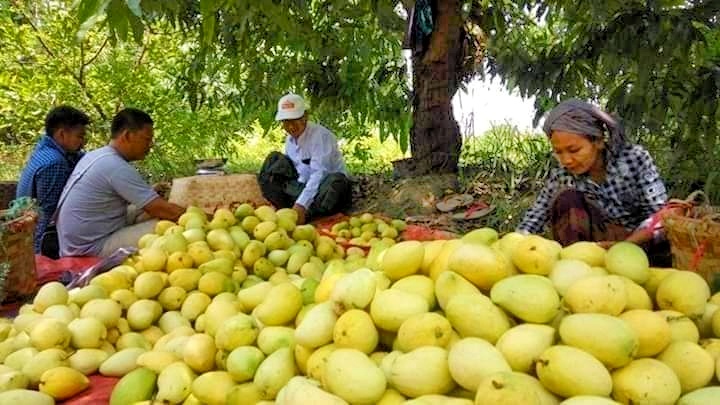June 27
The premium export quality mangoes delivered to China were offered above 100 Yuan per 16-kg basket yet inferior quality ones cannot even cover the freight charge, Sai Khin Maung from Khwa Nyo fruit trading depot pointed out.
This being so, quality of fruits plays a pivotal role in export. Poor quality might yield a loss. So, he highlighted that only premium quality fruits can grab a strong market share.
“Mango skin colour, quality and uniform size are crucial in exports rather than quantity. Other export potential for mango paste, dried mango is still required to be examined. We have a favourable climate and fertile soil for mango trees yet inferior quality that did not meet export standards can make less benefits. The most important thing to consider is quality control. If not, the traders can face a huge loss like the case this year. Market share can be increased only when the suppliers can maintain quality,” he elaborated.
Delay caused by China’s Customs policy changes led to quality degradation of the mango in early May 2023, traders involved in Muse border stressed.
Therefore, Myanmar sellers must closely observe the market conditions and fruit quality.
The growers are battered by high cost of cultivation input and market reputational risks every year. Last year, low use of cultivation input brought down quality, causing post-harvest diseases such as stem end rot and black spot in fruit.
Some traders did not even cover the cultivation cost due to inferior quality of Seintalone mango.
Out of about 200 mango varieties originated in Myanmar, Seintalone, Shwehintha, Padamyar Ngamauk, Yinkwe, Machitsu and other varieties are primarily grown. Foreign market prefers Seintalone varieties.
Ayeyawady Region possesses the largest mango plantation acres, having about 46,000 acres. Bago Region is the second largest producer with 43,000 acres and Mandalay has 29,000 acres of mango. There are over 24,000 acres in Kayin State, over 20,400 acres in Shan State and over 20,000 acres in Sagaing Region, according to Myanmar Mango Market and Technology Development Association. — NN/EM



